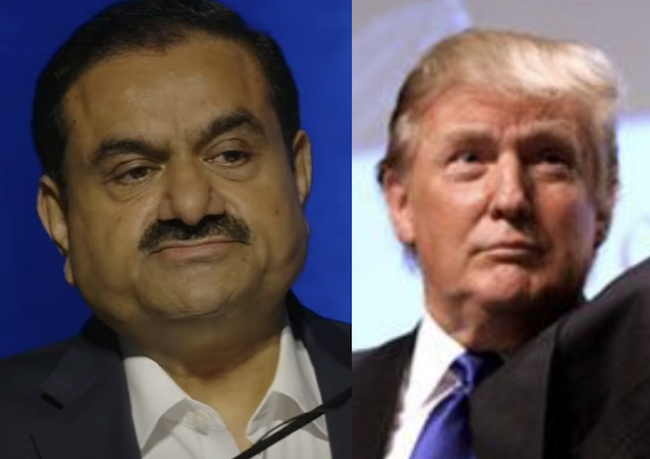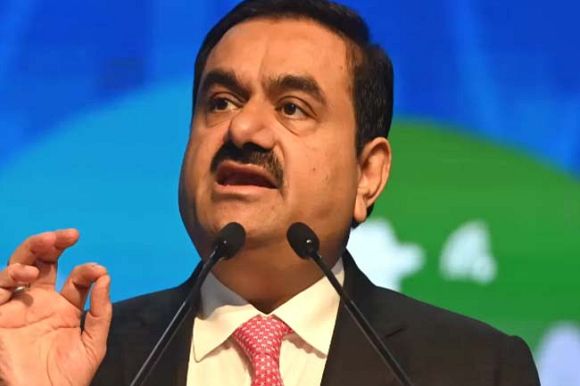President Trump's suspension of the Foreign Corrupt Practices Act has signalled to business elites that compliance with anti-corruption laws is optional for the well-connected, writes Ajay Chaudhary.
IN FEBRUARY 2025, President Donald Trump signed an executive order that sent shockwaves through the global legal and business community: a suspension of the Foreign Corrupt Practices Act (FCPA), the cornerstone of America’s decades-long fight against international bribery and corporate malfeasance.
The move, cloaked in language about 'eliminating regulatory burdens', was hailed by some multinational firms as pro-growth. But to many legal scholars and transparency advocates, it signalled something far more troubling: the opening of a new era in which global business ethics can be redefined or dismantled by executive whim.
Against this backdrop, the involvement of India’s Adani Group has brought new urgency – and concern – to the implications of the FCPA’s suspension. According to Bloomberg, representatives of the conglomerate, led by billionaire Gautam Adani, met with officials close to the Trump Administration to press for the termination of a U.S. criminal investigation.
The case involves serious allegations: that Adani executives participated in a bribery scheme to win government energy contracts in India and misled investors in a $750 million green bond issuance marketed in the United States. In the absence of strong anti-corruption enforcement, such cases risk becoming political negotiations rather than judicial processes.
This is not simply a matter of legal strategy. It is a calculated attempt by one of the world's most politically connected corporate entities to use executive power as a shield against judicial accountability — and it poses a grave threat to the principles of fair competition and the rule of law in international commerce.
The global consequences of domestic deregulation
The Trump Administration’s rollback of the FCPA is not occurring in a vacuum. It comes amid a wider effort to dismantle post-Watergate regulatory regimes, particularly those that limit the extraterritorial reach of U.S. law. Trump and his advisers have framed this as a matter of “restoring sovereignty” to American firms, arguing that the FCPA penalises U.S. companies in emerging markets where bribery remains endemic and unpunished.
But in practice, this rollback has invited a different kind of sovereignty — one claimed by foreign corporate giants, such as the Adani Group, who now see an opportunity to neutralise legal threats through political lobbying rather than legal defence. The result is a dangerous inversion: instead of protecting honest firms from being disadvantaged in corrupt environments, the U.S. is now empowering firms with political leverage to circumvent the law entirely.
Adani’s strategy is emblematic of this new calculus. Rather than contest the allegations in a U.S. courtroom, the company appears to be placing its bet on the transactional instincts of the Trump Administration — assuming that influence and proximity to power can replace legal arguments.
Institutional subversion by other means
The implications extend well beyond this case. At stake is the credibility of the United States as a global enforcer of corporate transparency and market integrity. For decades, Washington has urged allies to adopt versions of the FCPA, and has prosecuted companies across Europe, Asia and Latin America under its provisions. U.S. markets became magnets for global capital in part because of the legal certainty and high ethical standards they offered.
The moment a politically connected foreign company can short-circuit that legal process through executive intervention, the United States forfeits any claim to moral leadership on anti-corruption. The damage is not merely reputational, it is structural. Investors, particularly in emerging markets, rely on legal enforcement to ensure they are not underwriting fraud. If enforcement becomes contingent on political favour, markets grow opaque, unstable and rigged.
This, fundamentally, is what makes the Adani episode so corrosive. It signals to global business elites that compliance with anti-corruption laws is optional for the well-connected. It also tells developing nations that the rules-based order the U.S. once championed has been replaced with a system of access, deals, and quiet understandings.
India’s democratic reputation at risk
The implications for India are just as profound. Gautam Adani is not just a corporate figure, he is widely seen as one of the closest allies of Prime Minister Narendra Modi. The Adani Group has benefited from favourable regulatory environments, large-scale government contracts and state-backed financing.
While no formal link has been established between the Indian Government and Adani’s lobbying in Washington, the optics are difficult to ignore: a flagship Indian conglomerate, facing serious criminal allegations, is attempting to escape justice not through legal argument, but through political barter with a foreign power.
This casts a long shadow over India’s own commitment to transparency and institutional independence. For a country that aspires to be a leading voice in the democratic world – positioning itself as a counterbalance to China’s state-capitalist model – this moment presents a stark credibility test. If India's most powerful businesses are seen as willing to undermine the judicial process abroad, it calls into question the integrity of market practices at home.
The path forward
The suspension of the FCPA may not be permanent — lawsuits have already been filed to challenge the executive order’s legality. But the message it sends is already resonating in global boardrooms. If the Adani case is allowed to dissolve in a fog of political pressure, it will become a watershed moment, not just in U.S. legal history, but in the evolution of global business norms.
The Department of Justice and Congress must act decisively to protect the independence of the judicial process. A formal review of any foreign lobbying tied to the FCPA rollback is imperative. Moreover, global investors and governance institutions – from credit rating agencies to sovereign wealth funds – must begin recalibrating their assessments of companies that operate within these emerging legal grey zones.
What’s at stake is more than one prosecution. It is the integrity of international markets, the legitimacy of the rule of law and the idea that justice, however delayed, is not for sale.
Ajay Chaudhary is an Indian American freelance journalist and former assistant editor of The Pioneer, India.
 This work is licensed under a Creative Commons Attribution-NonCommercial-NoDerivs 3.0 Australia License
This work is licensed under a Creative Commons Attribution-NonCommercial-NoDerivs 3.0 Australia License
Support independent journalism Subscribe to IA.

Related Articles
- Angus Taylor's 'Watergate' links emerge in secret government deal
- Transparency in limbo as MP expense data held from public
- Dodgy governments, corrupt institutions and shadow states lurking beneath our democracy
- EDITORIAL: Dodgy governments, corrupt institutions and shadow states lurking beneath our democracy
- Corruption-proofing the Sunshine State: There is a better way










